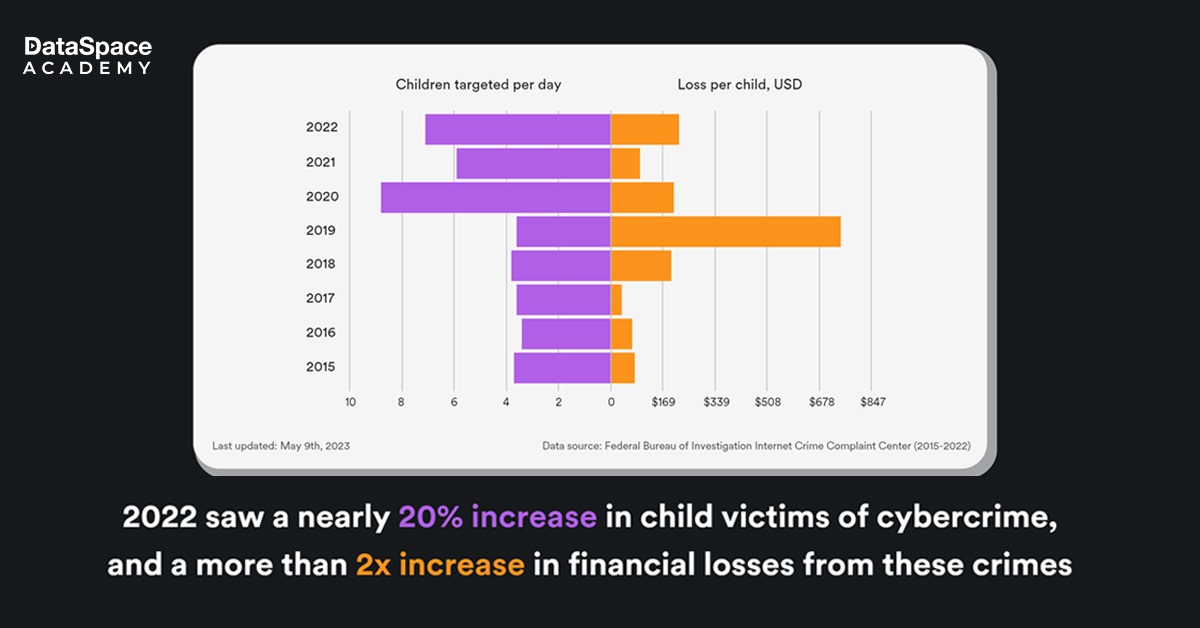[br]
Cybercrime incidents against children spiked by 20 per cent in 2022. Over 70% of children have encountered at least some kind of cybercrime online. According to an alarming report published at
IJARSCT, on average 1.5% of cyber crimes in India are against children. Kids are the most common victims of cyber blackmailing or harassment, pornography, bullying, and other similar crimes perpetrated online. Cybercriminals usually find easy prey in kids as the little ones are not always aware of safe cybersecurity practices. Thus, parental guidance about responsible online behaviour is paramount. Parents must proactively educate kids about essential cybersecurity tips to keep them safe from online perpetrators.
This blog extends a listicle on crucial cybersecurity tips and tricks that you should teach your kids to prevent cyber harassment. A vigilant, informed child is an invaluable asset in the modern digital world.
Children, often, lack the necessary skills to spot someone lying to them. They are more well-intentioned and trusting than adults. This makes it easier for scammers to trick them easily.
Plus, children lack patience. They often neglect cybersecurity measures that can compromise their safety. Children are often curious about the topics they see in the movies they watch or talk about in their circle of friends. This curiosity leads them to research it online. These random virtual searches could take them to harmful sites, especially if the subject is controversial.

As mentioned above, Children usually become an easy target of cybercrime offenders and online sexual predators. Here are some of the top cybercrimes perpetrated against children:
-
Teach your child how to create strong, unique passwords for their online accounts. The ideal password will be a mixed bag of special characters, letters, and numbers. Advise them to avoid using easily guessable information like their birthdate.
-
Emphasise the importance of not sharing personal information online. You must educate them on identifying and avoiding online scams. Also, create a safe space for your children so that they can report any suspicious online encounters.
-
Set daily online time limits for your children. Decide which websites and apps are suitable. Regularly monitor your children's online activities.
-
Help your child set privacy settings on social media platforms and other online accounts. This will help to restrict public exposure to their posts and information on social media. Explain the importance of limiting the sharing of personal details.
-
Configure parental controls on your home router. Utilise device controls for limiting access. Employ parental control software for continuous monitoring.
-
Explain the concept of phishing scams, where attackers try to trick people into revealing personal information. Teach your child to be sceptical of unsolicited emails, messages, or links, especially if they seem suspicious.
-
Among the top cybersecurity tips for students, this is probably the most important. Educate them about cyberbullying and the need to immediately report these kinds of incidents to a trusted adult.
-
Remind your child to be cautious about accepting friend requests or interacting with strangers online. They should only connect with people they know in real life.
-
Stay updated on the latest online trends, apps, and platforms your child is using. This will help you better understand their online activities and potential risks.
Cybersecurity is essential for everyone. With rising incidents of cybercrimes against children, parental guidance for minors is paramount. As organisations are teaching cybersecurity tips for employees, parents should also open conversations with their kids about digital safety. They need to prepare their children against
online dating scams and other cybersecurity incidents.
